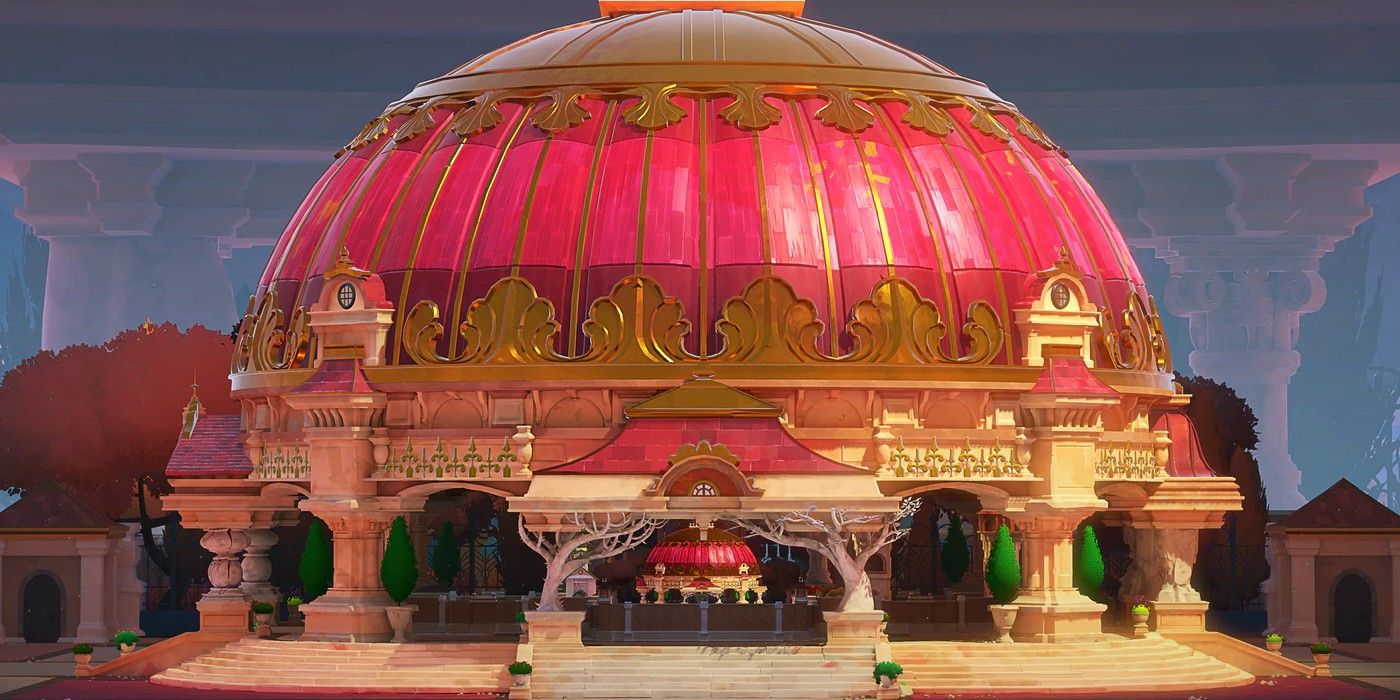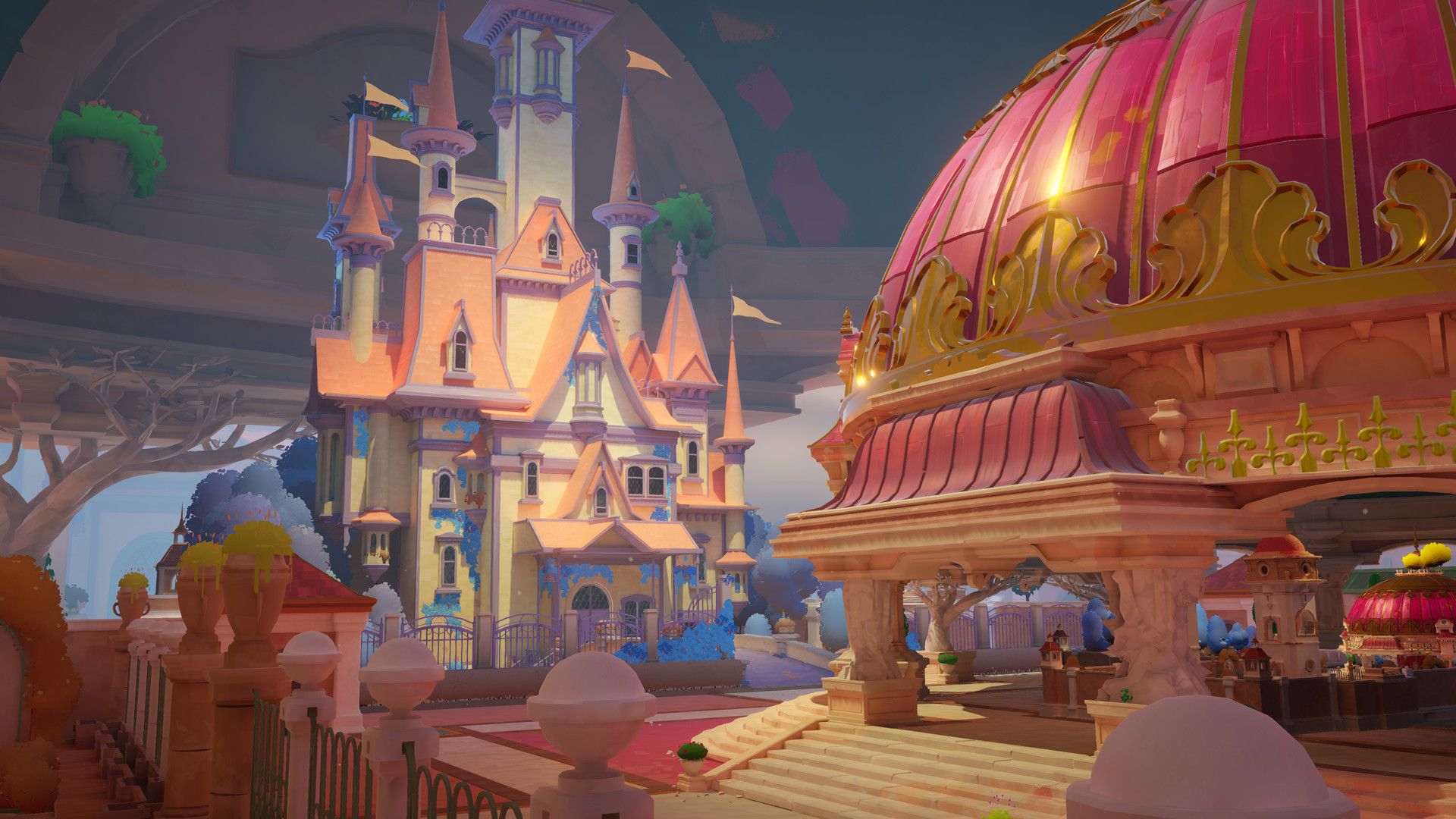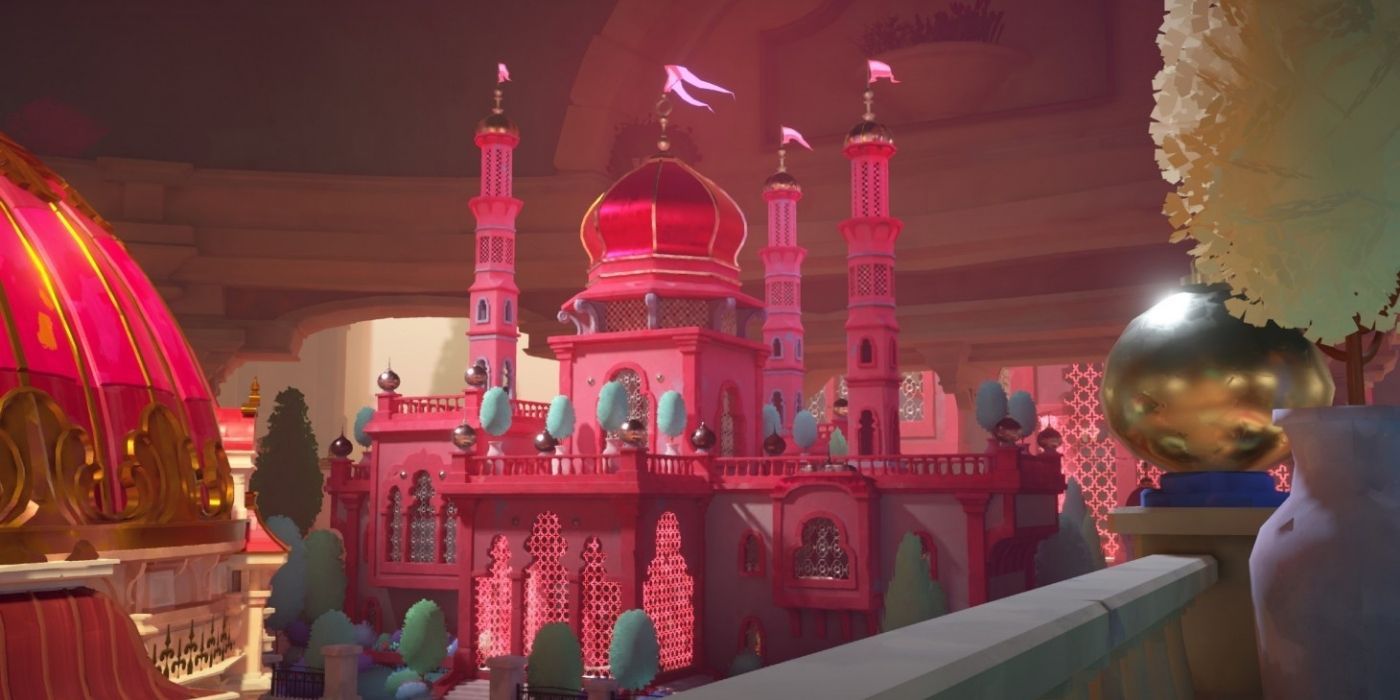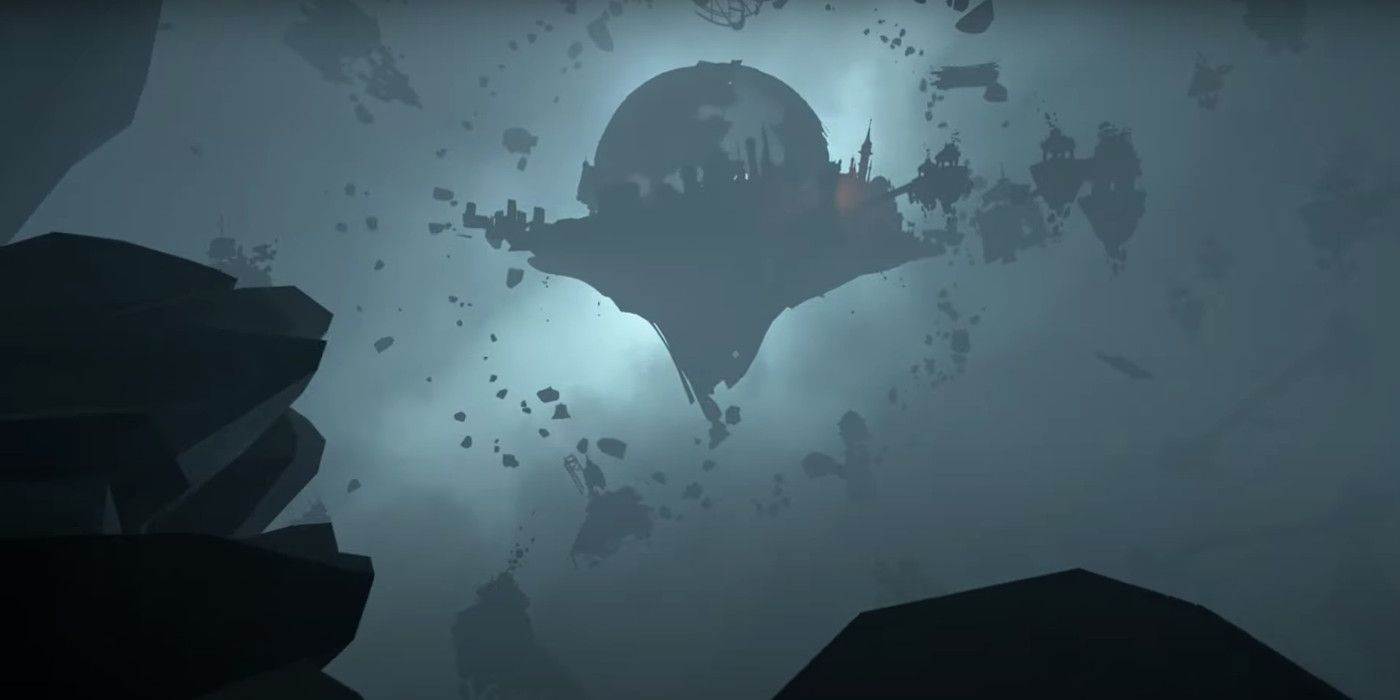Maquette has come a long way. The game was originally shown at GDC 2011, where it immediately drew comparisons to Portal for being a first-person game with an innovative mechanic for puzzle-solving. 10 years later, Maquette is finally available and unfortunately, it becomes quite apparent that the game simply does not have the same legs as other hit first-person puzzle games of recent years.
Maquette's title refers to scale models, which is fitting as the game is all about interacting with a model version of an area to in turn manipulate the regular-sized version of that area. For example, the first area players explore in Maquette looks like a Disney theme park. This is not an accident, as developer Graceful Decay is run by Hanford Lemoore, who used to design real-world attractions at Disney theme parks. Regardless, the area is separated into four distinct sections and players have to figure out how to reach each one.
In this first area, a large cube is blocking the player's path in the regular-sized world. But if they go to the model in the center, they can pick up a miniature version of that cube, which in turn moves the larger version in the regular-sized world. It's somewhat difficult to explain in words, but in practice, players should catch on pretty quick. More or less the entire game is built around these kinds of puzzles, though the concept doesn't really evolve beyond its initial premise.
There's a "wow" factor to Maquette at first, but once players realize that it pretty much only has the one trick up its sleeve, the sense of wonder starts to wear off. It still manages to deliver some decently fun puzzles with its concept, but puzzle gaming fans shouldn't go into it expecting anything all that spectacular. It's a serviceable, short puzzle game with some technical quirks that can make it annoying at times.
Generally, one's experience in Maquette will be smooth-sailing, but there are times when the game does not want to cooperate with the player. This is most apparent in Maquette's Gateways level, where the game struggles to let the player character drop the crystals that they have to carry around. It seemed to be due to collision issues, with the game thinking that there was something in the way that would make dropping the crystals impossible, but it did this regardless of where the player character was positioned. Other times puzzle objects would get stuck on the environment when trying to rotate them into the proper position, which wasn't a huge deal but still inconvenient.
Rotating objects in Maquette is one of the only times that the game takes advantage of the PlayStation 5's unique capabilities. The PS5 DualSense controller's adaptive triggers and haptic feedback are used to give more weight to object rotation, and while that may sound unimportant, it does still enhance the experience, if ever so slightly.
Maquette is one of the free PS Plus games for March 2021 on PlayStation 5, so it's safe to say that the majority of console players will experience it on Sony's next-generation console. Anyone expecting Maquette to truly look or feel like a next-gen game is going to be disappointed, but the game is still quite striking from a visual standpoint. This isn't so much due to it leveraging the PS5's horsepower, but rather thanks to its appealing, colorful aesthetic and the unique art style that makes up the game world.
Maquette consistently treats players to new sights, from the Disney-like area that they start in to a dark, foreboding cave later on. One of the more memorable visuals comes in Maquette's The Escape chapter, as players move through a street lined with buildings that gradually become more sinister-looking, matching the mood of the characters in the story that is playing out in the background.
The gameplay in Maquette is somewhat divorced from the story, which is essentially about a typical romantic relationship. It will likely be very relatable to anyone that has been in a long-term relationship, and even though players never really see the characters in the story, they will still find themselves invested in their romance. The plot can be a little cheesy and pretty predictable, but that's fine because it's not trying to be some twisty, mind-bending narrative. Maquette tells a simple, straightforward story with realistic dialogue and genuine emotion, elevated greatly by excellent performances from Bryce Dallas Howard and Seth Gabel (who are actually married in real life).
Even if one is not particularly engaged by Maquette's puzzles, it's arguably worth playing through for the performances, art style, and soundtrack, especially since it's so short. Maquette can easily be completed within two to three hours on an initial playthrough, and even faster for people that already know what they're doing. This ensures that the story is lean and the core gameplay mechanic doesn't overstay its welcome, but it is also something that may turn off people who are looking for more substantial experiences in terms of playtime.
Maquette has a secret or two for players to find, but the game otherwise doesn't really give players any reason to go back through. The lack of chapter select is also likely to irritate trophy hunters, as it means that they will need to play through the whole game again if they miss something and want to unlock the platinum trophy.
Maquette's short length makes this inconvenience slightly less frustrating than it would be otherwise, but it's still a glaring oversight that is sure to sour completionists' opinion on the game. Maquette's short length does make it an ideal candidate for the PS Plus lineup, as this way gamers can experience the story, art, and soundtrack without having to make any financial commitment beyond their existing subscription. But those on PC and PlayStation 4 may find it more difficult justifying spending even $20 on such a brief puzzle game.
Maquette is out now for PC, PS4, and PS5. Game Rant reviewed the game on PS5.




